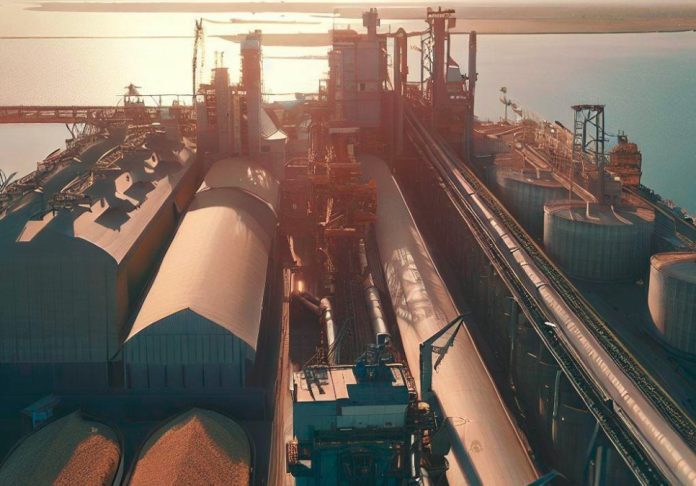News in brief: Ukraine plans to construct a grain terminal at the Lekki port in cooperation with the Lagos Free Zone management, aiming to ensure a continuous supply of agricultural products to Nigeria and Africa despite the impact of the ongoing war with Russia.
Ukraine is set to build a grain terminal at the Lekki port in Lagos, news reports claim. The Ukrainian Ministry of Agrarian Policy and Food signed the deal with the Lagos Free Zone management, a venture under the Tolaram Group.
The Eastern European country used to be a global wheat giant but has seen a drop in production and export since Russia invaded its borders resulting in an ongoing war.
The memorandum of understanding (MoU), signed at the Ukraine Recovery Conference in London, contains the specifics of the two parties’ agreement to work together.
The Ukrainian First Deputy Minister of Agrarian Policy and Food, Taras Vysotsky said the cooperation is vital and will target creating the necessary infrastructure to ensure further ceaseless supplies of Ukrainian agricultural products both to Nigeria and the entire African continent. He stressed that the goal was to ensure food security in the region in greatest need.
The minister further assured of Ukraine agric sector’s continued support in playing an important role in ensuring international food security, especially when the world population is increasing.
Lekki Deep Sea Port is Nigeriaâs first fully automated port. The Nigerian government and Lagos state jointly owns and operates it alongside the Singapore-headquartered Tolaram Group and the China Harbor Engineering Company.
It’s been over a year since Russian forces invaded Ukraine in February 24, 2022, and while it has resisted, thanks to aide from European and American allies, the war has led to massive damages to its agrarian sector, especially in the eastern region. According to estimates, Ukraine has lost over $6.6 billion worth of agricultural infrastructure which has impacted farmers’ livelihood severely as they have been unable to grow and ship their crops as they could before.



